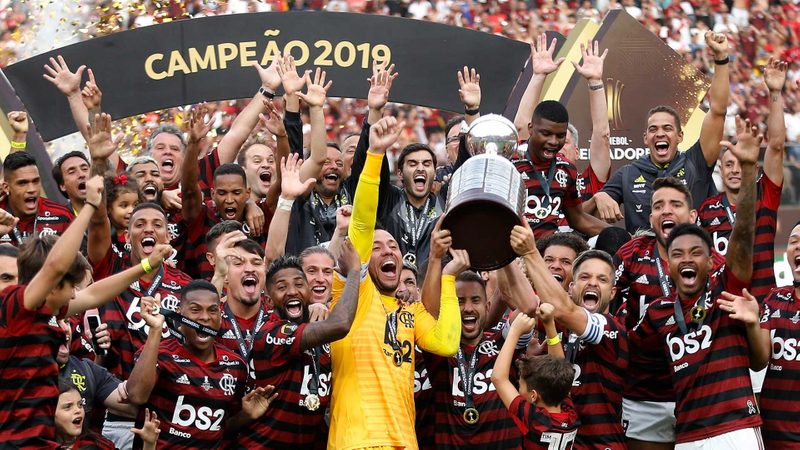
Flamengo taking on River Plate in the Copa Libertadores final at the Estadio Monumental in Lima, Peru, offered everything that the spectators were aiming for. At one end, there were the Argentines who were running in for their fifth continental title. They, in fact, were longing on defending the crown, which they won in a dramatic fashion last year against their inter-city rivals Boca Juniors in a two-legged final. The other end, however, was amused by the Brazilians who were back on the stage for the first time since winning the crown in 1981.
The tale of two contrasting units was bound to deliver a magnificent narrative given that Flamengo have been on a rampage since the start of the season. Their Campeonato Brasileiro Série A form has been so glorious that they were crowned as the new champions with four games still to play.
The Copa Libertadores outings, however, saw a blip especially during the group stages, where four of the three teams finished with 10 points. Flamengo, on their part, progressed only on the back of a superior goal difference. A 2-0 defeat in the first leg of the Round of 16 against Emelec further hammered the perspective, but a comeback in the return leg made for all the fallacy.
Flamengo’s upsurge in 2019 has been nothing short of any revelation and most of it has been made possible by perfect execution of acute transfer business.
Endearing Homecomings
Flamengo – also known as Rubro-Negro – boast of several match-winning personnel, but a certain 22-year-old midfielder Gerson has been credited for organizing the team. Deployed centrally in Jorge Jesus’ 4-2-3-1 approach, Gerson first hogged the limelight in 2015 while playing for Fluminense and Italian giants, AS Roma were quick to invite him at the Stadio Olimpico. The hype though didn’t last long, and his tenure was marred by a lowly loan spell with Fiorentina before Flamengo came knocking at his door.
Earlier this year, the 22-year-old moved back to his home country for a reported fee of €11.8m and thus became the most expensive Brazilian player to have signed for a Brazilian club.
Like Gerson, Gabriel "Gabigol" Barbosa, endured a similar transition when his move to Inter Milan in 2016 turned into an absolute farce. The puff created through his €29.5m move to Italy dispersed in thin air as he failed to live up the billing. His then manager, Frank de Boer even went on to say,
"They called him Gabigol, but we called him 'Gabi-no-gol.,' as quoted by ESPN.
“He joined us with two personal social media editors and a bodyguard but didn't do anything. The manager who came after me -- I left quite fast of course -- also didn't get him to play.”
 Image: AFP / Ernesto Benavides
Image: AFP / Ernesto BenavidesGabriel burst onto the scene with Santos as a 16-year-old and his debut, in fact, came against Flamengo in what was Neymar’s last game for Santos in 2013. A turbulent journeyman, Gabriel moved back to Brazil in January this year and has since found his goalscoring boots.
Having scored 22 goals and seven assists in 26 league games, Gabriel produced the moment of magic when it mattered the most.
And while Flamengo’s attacking instincts have been well above par, the experience they carry in defense is simply undeniable. Fan favourites, Filipe Luiz and Rafinha acquire the full-back positions and the latter, with a vital contribution on Saturday became only the tenth player in history to win both the Copa Libertadores and the UEFA Champions League.
Recruited in the months of June and July, both Luiz and Rafinha brought a plethora of European experience. Now in the wrong side of 30, a move back to Brazil was made evident and Flamengo made no mistake in luring them in.
A win beyond football
Back in February this year, as many as ten budding footballers died at the training centre of the club after a fire broke out in the dormitory where the players were sleeping. The agony was felt by the entire footballing community and this historic win simply goes beyond the boundaries and rather accomplishes the oath the club vowed to.
Now that all the major titles are in the cabinet, fans may very well look forward to meeting Liverpool in this year's FIFA Club World Cup final in Doha.
Feature image courtesy: AFP / Luka Gonzales





























